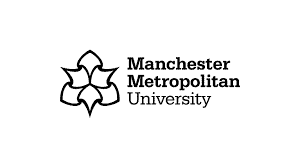Overview
A Philosophy A Level will teach you to think logically and critically about issues, to analyse and construct arguments and be open to new ways of thinking.
You must enjoy reading and writing as well as being prepared to contribute to class discussions.
You will also be introduced to the methods and aims of Philosophy through the study of traditional philosophical problems such as; What is knowledge? Is morality merely a matter of opinion or can it be objective and factual? And, Can thoughts be explained in purely physical terms?
Entry Requirements
Aside from the general entry criteria that the College requires, you will also need to achieve a minimum of:
• Grade 4 in GCSE English Language
Philosophy A Level is distinct from the material covered in GCSE Religious Studies and performance in English Literature, History and Maths GCSEs are better indicators of success in Philosophy A Level than performance in Religious Studies.
Course Details
In your first year, you will be introduced to philosophical reasoning and argument and how to assess whether an argument is successful or not. You will explore how reason and experience contribute to our knowledge of the world and what our perceptions can tell us about the nature of reality and whether we can be said to be born with any knowledge. Further, you will study Moral Philosophy which involves asking what makes an action right or wrong? What constitutes a good or bad person? and Are lying, stealing or enjoying simulated killing in video games immoral?
In the second year, you will deepen your understanding of Philosophy by studying philosophical questions about the nature of God and whether His existence is compatible with evil in the world and how human freedom can be reconciled with an all-powerful creator. You will also study the Philosophy of Mind which investigates the nature of consciousness and whether our minds can be reduced to aspects of our physical bodies or whether they are the kind of things that cannot be subject to scientific explanation.
Assessment
The course is assessed by two written examinations. The two exams are both three hours long and are a mixture of short comprehension and longer evaluative essays.
Subject Combinations
Philosophy combines extremely well with most other disciplines because these have philosophical issues embedded within them. It goes very well with Humanities subjects such as History, English Literature and English Language, Classical Civilisation, and Politics, but also very well with Mathematics and Sciences, such as Physics, Chemistry and Biology, and Social Sciences, such as Psychology.
University Destinations
Philosophy A Level is a highly respected qualification, with 90% of our students progressing onto University.
Here are some typical University Destinations that our Philosophy A Level students go on to. Click on a destination to see some examples of courses they have taken;

The University of Manchester
Typical courses: Philosophy / Modern History with Economics / Politics and International Relations / Architecture

Newcastle University
Typical courses: History / Geography / International Business Management with Placement

Solent University
Typical courses: Television Production / Psychology with Counselling and Mental Health
Careers
Philosophy has always been seen as providing a rigorous intellectual training and is regarded as an invaluable preparation for careers in the law, the higher reaches of the Civil Service and the Diplomatic Service, jobs requiring policy formation, and work in education. Universities particularly value Philosophy for the analytical skills and the cognitive perspective on other disciplines it provides.
FAQs
Is Philosophy quite maths heavy?
Yes, you don’t need a high grade in maths GCSE but it helps with the abstract thinking and rigorous problem-solving aspect of the topics discussed.
Is Philosophy a good alternative to Religious Studies A Level?
Yes – the Philosophy A Level can be more challenging than the standard RS A Level offered elsewhere. Philosophy isn’t all about God’s existence or religious philosophy, but more on the themes and metaphysics of what exists.
What if English isn’t one of my strong subjects?
I would urge caution if you are not great at English. This course is very much essay-based work and written exams.
What skills will I need and develop on this course?
You will learn the skill of identifying, spotting and explaining flaws in philosophical theories and arguments, and you will also be enabled to construct and develop your own arguments in support of, or against, a variety of philosophical positions. You need good written skills and will develop these further in the context of producing essays on philosophical questions.
What is the difference between Philosophy and Psychology A Levels?
Psychology has often been described as the science of human and animal behaviour, and as a science it uses empirical methods of investigation, essentially observation and experiment. Philosophy is very different and is carried out through the use of reasoning and conceptual analysis, hence its resemblance to mathematics in this respect. Philosophy is also a much broader discipline than Psychology, encompassing philosophy of science, the theory of knowledge, the philosophy of religion, the philosophy of art, ethics, logic, and political philosophy, to mention only a few of the areas in which it is involved.
What extra support/enrichment activities are on offer?
Opportunities are offered for the discussion of ideas both in class and outside of College through visits to events like the annual “Battle of Ideas” festival at the Barbican. In previous years successful trips to New York to visit the United Nations, Ground Zero and Ellis Island Immigration Museum have taken place and Philosophy students have participated in the annual Classical Civilisation trip to Greece to visit the key sites of the ancient Greeks. Students will also be taken to philosophical conferences to enhance their studies, and guest speakers from university Philosophy departments will be invited in.
There are also opportunities for extra help in tutorial and lunchtime sessions, and catch-up sessions will be provided for writing tasks that need completion.
What do our students say about studying Philosophy?
‘I was hesitant about picking Philosophy at first, but ultimately gave in to curiosity. I quickly discovered how important it was as a discipline and how valuable philosophical thinking could be. From capitalism vs communism to torture and the meaning of life, the range of topics we covered was always exciting.” Charlie.









